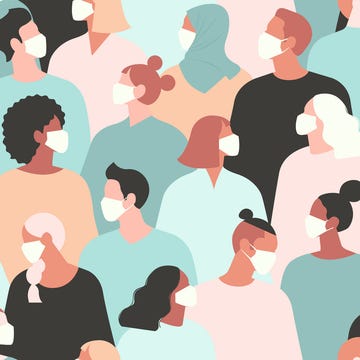Your mental acuity is as important as your physical health and as we age, it’s vital to do whatever we can to protect our brain and build cognitive reserve to guard against decline. Here, Dr Barbara Sahakian, author of new book Brain Boost, outlines how she keeps deterioration at bay and reveals the habits she adopts to lead a longer, healthier and more fulfilling life.
Exercise
I get out for a long walk each day – and while I’m walking, I practice mindfulness. I focus my thoughts on trees, flowers and beautiful buildings that I am passing on my walk and I try not to worry about the future or dwell on mistakes. Exercise is good for your brain, and it’s great for your cognition. It also boosts your mood. Remember, doing anything at all is better than being sedentary all day.
Stay curious
Learning something new challenges the brain. This means the neural circuits are activated and also affects your hippocampus – the area of the brain that is one of the first ones to deteriorate, for instance, in Alzheimer’s disease. So, if you can keep this area active and in good shape, that should help delay any cognitive decline. We don’t all want to go out and learn a new instrument or language; but even book clubs provide an opportunity to challenge your brain. Reading interesting books and having discussions about them is really beneficial.
What to read next
I am always curious to learn something new, which I’m lucky enough to do in my work. Outside of work, I like reading, theatre and music. Going to the theatre with family and friends is a great way to engage in challenging discussions about the meaning or interpretation of the play and which actors were particularly good and why. It also has the advantage of being fun and of spending time socially with others.
Get the right amount of sleep consistently.
We all know how difficult it is to function well at school, university or work without a good night’s sleep. Our own study, published in Nature Aging, showed that seven to eight hours of sleep consistently in middle age and for older adults is best for our brain structure, cognitive abilities, mental health and wellbeing. I really prioritise my sleep. I’m very organised about it and try to get seven to eight hours a night – though with global travel, jet-lag and sleeping in a hotel bed, it’s not always possible.
We used to think of sleep as very passive process. But it’s so much more important than that, because we remove toxic waste by-products from our brains during sleep and we also consolidate our memories. So, if you’ve been learning something during the day, you’re consolidating that learning and the memory of it during your sleep. And again, that’s done using the hippocampus. Sleep is restorative for the body and the brain.
Spend time with others
Our study, published in Neurology in 2022, showed that socially isolated individuals had a higher risk of developing dementia. Keeping socially connected is good for your brain, cognition, wellbeing and mental health, so it’s really important to keep in touch with family and friends. I’m very social and I do spend a lot of time with people. Whenever I go out to the theatre or to a concert, I try to involve other people. It’s nice to have me-time – it may be that you like being on your own – but most of the time, it’s much more fun to involve other people. And this is what your brain needs. If you’re not with other people, you’re not using your language skills or any of the skills that you require for social cognition, and it’s very easy to get locked in your own world and become socially isolated.














